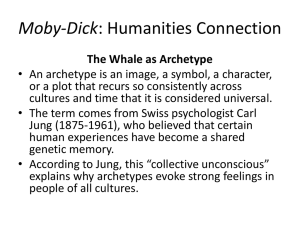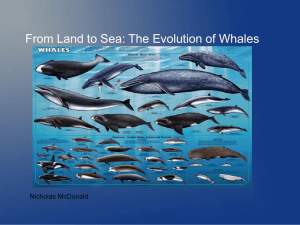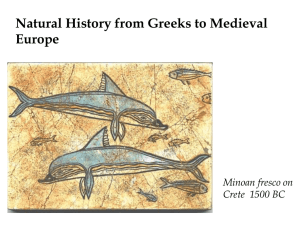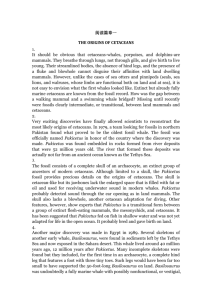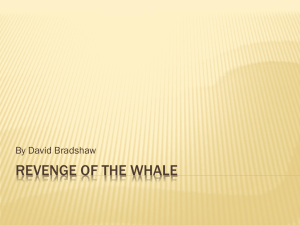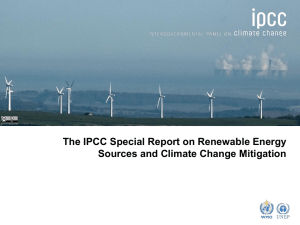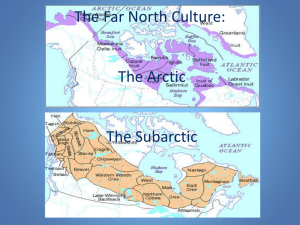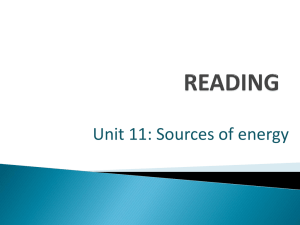PowerPoint® slides
advertisement
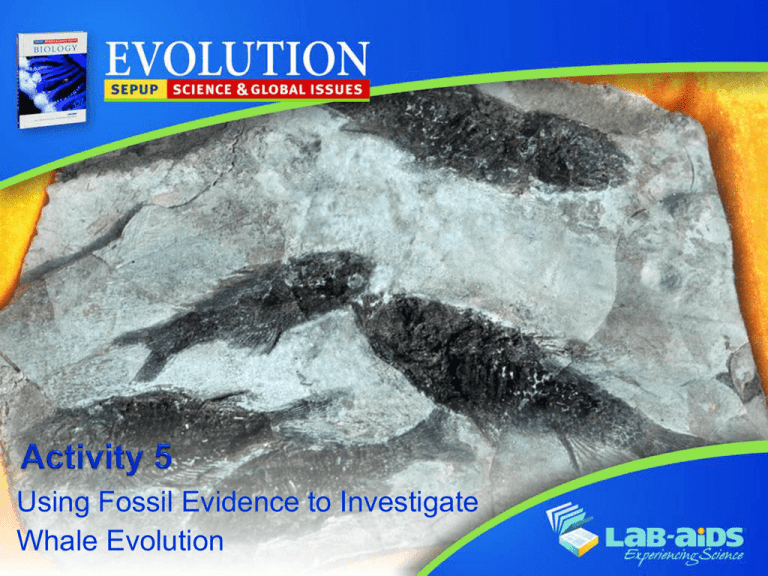
Using Fossil Evidence to Investigate Whale Evolution LIMITED LICENSE TO MODIFY. These PowerPoint® slides may be modified only by teachers currently teaching the Science and Global Issues SEPUP course to customize the unit to match their students’ learning levels or to insert additional teaching aides. Modified slides may be used only by the modifying teacher in his or her classroom, or shared with other teachers of Science and Global Issues within the teacher’s school district, with these same restrictions. Modified slides may not be taken out of the classroom or distributed to any non-student person or organization. Except for use with students in the classroom, modified slides may not be published in printed or electronic form, including posting on the Internet. Only text may be modified: photographs and illustrations on the slides may not be modified in any way except to change their size. DISCLAIMER OF WARRANTY. THE REGENTS OF THE UNIVERSITY OF CALIFORNIA (“University”) MAKE NO REPRESENTATIONS OR WARRANTIES, EXPRESS OR IMPLIED, INCLUDING BUT NOT LIMITED TO THE IMPLIED WARRANTIES OF MERCHANTABILITY AND FITNESS FOR A PARTICULAR PURPOSE. University will not be liable for any costs, damages, fees or other liability, nor for any direct, indirect, special, incidental or consequential damages (including lost profits) with respect to any claims by the purchaser or user of Science and Global Issues or any third party on account of or arising from the use or modifications to the slides. Client acknowledges and accepts that University services are provided on an as-is basis. Activity 5: Using Fossil Evidence to Investigate Whale Evolution Get Started What characteristics do individuals in each of these groups have: fish? mammals? Activity 5: Using Fossil Evidence to Investigate Whale Evolution Introduction Read the Introduction. A fossil is physical evidence of living organisms that has been preserved over geologic time. Activity 5: Using Fossil Evidence to Investigate Whale Evolution Challenge How does fossil evidence determine the relationships of whale ancestors and their descendents? Activity 5: Using Fossil Evidence to Investigate Whale Evolution Procedure What are the similarities and differences between the two groups of whale fossils? Activity 5: Using Fossil Evidence to Investigate Whale Evolution Procedure Scientific Argumentation A claim: your conclusion about the most logical placement of A and D on the tree Evidence: the evidence you gathered that supports the claim Reasoning: how the evidence you gathered supports the claim Activity 5: Using Fossil Evidence to Investigate Whale Evolution Complete Whale Fossil Chart Activity 5: Using Fossil Evidence to Investigate Whale Evolution Whale Evolutionary Tree Activity 5: Using Fossil Evidence to Investigate Whale Evolution Follow Up Analysis 4 Explain the changes in the skeletons during the transition in habitat, according to the theory of natural selection. Activity 5: Using Fossil Evidence to Investigate Whale Evolution Revisit the Challenge How does fossil evidence determine the relationships of whale ancestors and their descendents? Activity 5: Using Fossil Evidence to Investigate Whale Evolution Key Vocabulary evidence evolution evolutionary tree fossil Activity 5: Using Fossil Evidence to Investigate Whale Evolution
